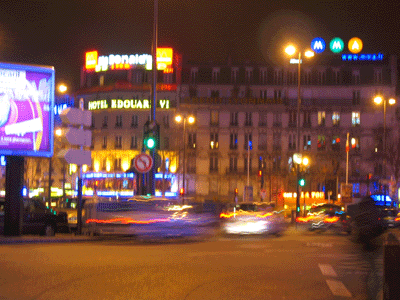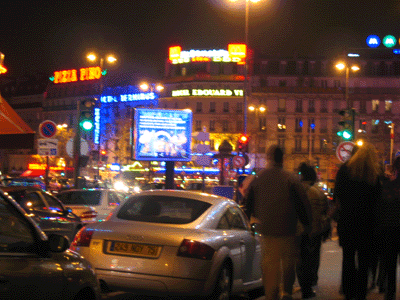














Montparnasse
Metro: Montparnasse-Bienvenue (lines 4, 6, 12, 13), Edgar-Quinet (line
6), Gaite (line 13), Vavin (line 4), Raspail (lines 4, 6)
The name of this quartier has its roots in Greek mythology, Mont Parnasse (Mount Parnassus) being the home of Apollo and the Muses (the 9 Greek Goddesses of the arts and sciences). Mont Parnasse was the nickname given to this area by 17th century students who came to this site to recite poetry. The heart of artistic and intellectual life during the 20th century, Montparnasse was home to many aspiring and to-be-famous painters, sculptors, writers, poets, composers, and filmmakers, many of them starving and penniless. Free to sit, work, discuss, and argue for hours on end in any of the numerous cafes of Montparnasse for only a few centimes, ideas and creativity abounded, and were one to fall asleep at their table, waiters were actually instructed not to wake them up! Works of art lined the walls of these cafes, paintings or drawings that had been accepted as temporary payment until the artist could afford to pay their tab, and artist communes, like La Ruche, with dirt-cheap rent and the non-existence of eviction if the rent was unable to be paid, housed artists from all over the world who came to Paris for inspiration. Modigliani, Matisse, Picasso, and Chagall are just a few of the famous painters who came through Montparnasse, in addition to the likes of Hemingway, Fitzgerald, Sartre, and Miro. Continuing the artistic and creative spirit, Montparnasse is favored by film buffs, les Cinophiles, today.
More about Montparnasse:
|






